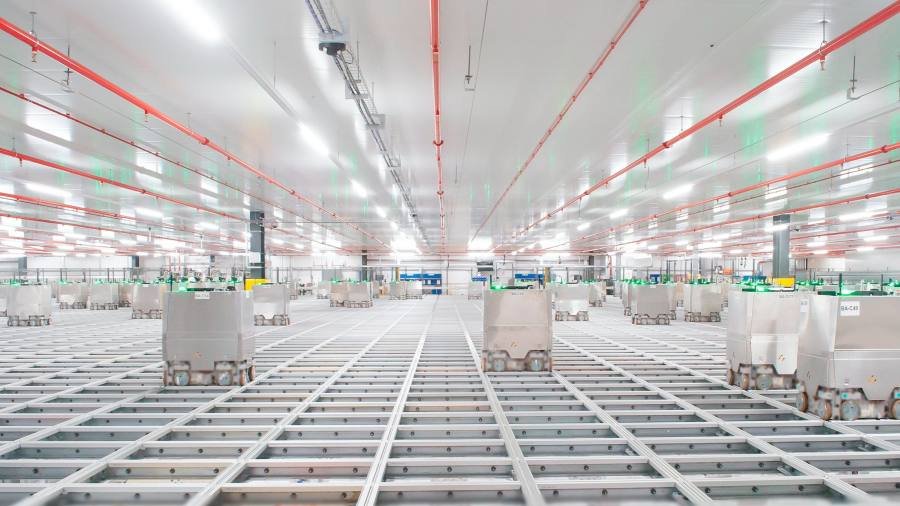
Ocado is deepening its push into south-east Asia as the UK company aims to become the Tesla of grocery ecommerce technology, its chief executive has said.
Its ambitions to grow in Asia follow a deal this month to help Lotte Shopping, one of South Korea’s largest companies, grow its online business. In late 2019, Ocado announced it would build out the online business of Aeon, Japan’s largest supermarket operator, and it also has a technology partnership with Coles in Australia.
“We’d love to do more business around Asia,” Tim Steiner, chief executive and one of the co-founders of the overall Ocado group, said in an interview during a visit to Chiba, where Aeon’s first robot-powered warehouse is scheduled to launch next year.
“South Korea is obviously a target market in terms of the size of the ecommerce business and the developed state of the country. But there are others as well that are interesting,” he said, although he declined to name the south-east Asian countries he was looking into.
The capital costs and long lead times of Ocado’s automated warehouses have in the past limited their appeal to countries where high labour costs make in-store picking of grocery orders comparatively expensive. But recent tech developments have reduced construction and running costs, widening their appeal.
Steiner argues Ocado’s platform differs from rivals because it is fully integrated, with Ocado’s engineers in control of building and altering the whole system, a model he compared to electric carmaker Tesla.
“Why is Tesla so valuable? Because it has built an end-to-end car,” he said. “It is a good parallel to our industry. Our engineers have built the whole thing.”
Ocado began offering its ecommerce technology to other groups in 2013 and its clients now include Kroger in the US and Groupe Casino in France. According to estimates compiled by Bloomberg, analysts forecast that its international ecommerce business could generate £1.1bn of revenue and £600mn of underlying earnings by 2030, compared with sales of just £66mn in 2022.
This expansion comes as sales at Ocado’s UK grocery joint venture with Marks and Spencer are expected to fall this year for the first time in the company’s history.
Steiner said the slowdown in sales growth was likely to be temporary, and attributed it to customers returning to dining out and shopping in stores following the pandemic.
“Whilst people are putting less items in their basket, that’s a bit of a post-Covid wind-down phenomenon,” he said, adding that “the whole grocery sector is a winner in a recession” because customers save money by not eating out.
Steiner acknowledged that Russia’s invasion of Ukraine and high energy prices were causing a slowdown in Europe, but said demand for Ocado’s automation service was expected to be strong due to a global shortage of labour and with the economy remaining robust in other regions such as the US.
“We’re making a piece of critical national infrastructure, effectively food distribution, significantly more productive at a time where, in the developed world, it’s getting harder and harder to find people who are actually willing to work in that field,” he said.
“Over time people [who] don’t invest in automation will find they actually can’t find the people to do it manually,” he added.